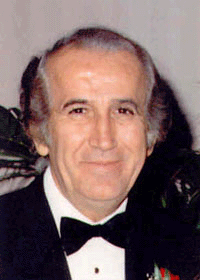

|
Teamwork, Preparation and Committment Lead to Academic Excellence |
||
On April 4, 2001, high school students from Lexington High School in Massachusetts won their fourth consecutive National Ocean Sciences Bowl award. Traveling to Miami after sweeping regional and state meets, these fledgling scientists bested teams from across the U.S. to earn more than just a title and trophy. The team and coach will fly to England, Sweden, and Paris for a 10-day European field trip, taking in the Southampton Oceanography Centre and setting sail on the Baltic Sea. With thumbs on buzzers, Lexington contestants put years of academic training on the line, Jeopardy-style, as they defended their title. Rapid-fire questions ranged over a number of disciplines, from biology, chemistry and physics, to the history and economics of the ocean. Students successfully fielded questions like "The normal equilibrium concentration of a given dissolved gas is primarily a function of what?" and "What are two characteristics of most slowly spreading oceanic ridges?" But the real story here is not simply that these students have won a number of awards, but that all the members of their team have been strong contestants. When they reclaimed the state title at the Massachusetts Science Olympiad, they defeated the second-place team by nearly 60 points, the best margin in the history of that competition. All fifteen members of the team won at least one medal. How did they do it? Teamwork, many months--even, years--of preparation, and a commitment by the Lexington Schools System to academic excellence, according to Dr. Nicholas Tzimopoulos, the Science Coordinator for the system. In Lexington, academic excellence is recognized and rewarded, just as sports teams receive honors. And for that reason, Dr. Tzimopoulos wrote to President George W. Bush to urge him to set a national example by recognizing academic achievements and excellence among young learners. It is the hope of this well-known scientist that greater emphasis on academics at the national level will reinforce the recognition given in noted school systems such as in Lexington. For our future standard of living, and indeed, the competency of our very own leaders, will be determined by our scientific and technological advancements. Below is the text of the letter sent to President Bush by Dr. Tzimopoulos:
Dr. Nicholas D. Tzimopoulos holds a doctorate in physical chemistry and currently teaches and coordinates the science program in Lexington, Massachusetts schools. He is one of the authors of a critically acclaimed chemistry textbook in use throughout the country in secondary-school and collegiate programs from New England to Hawaii. |
||
|
|

